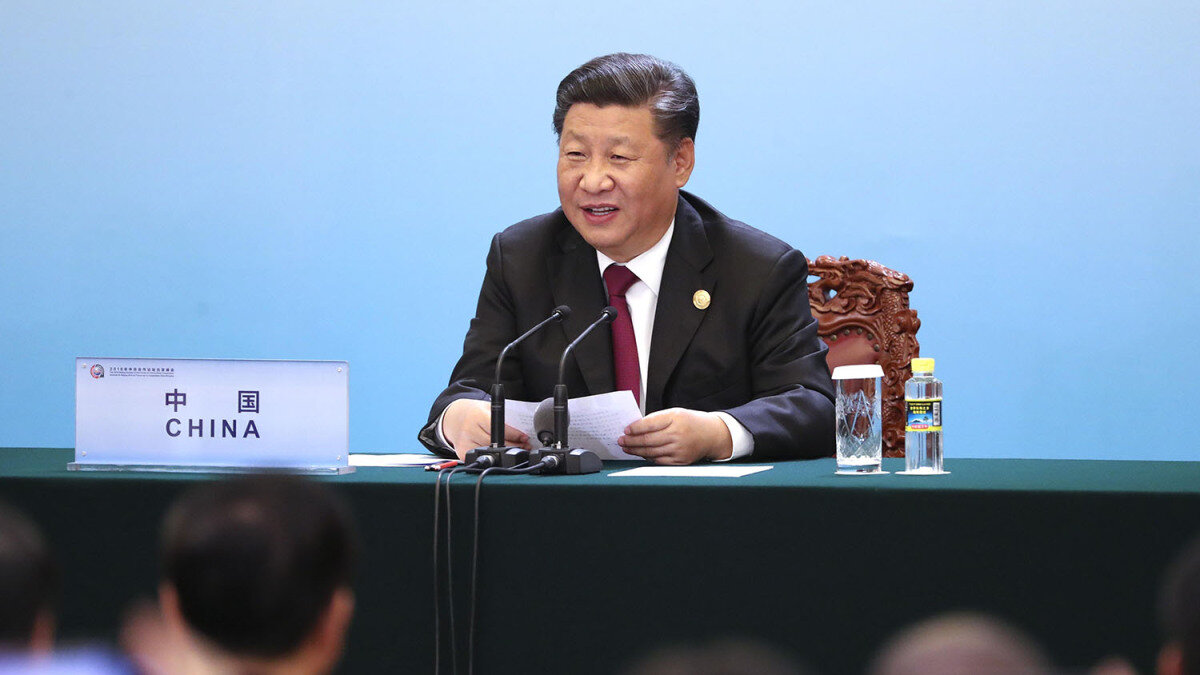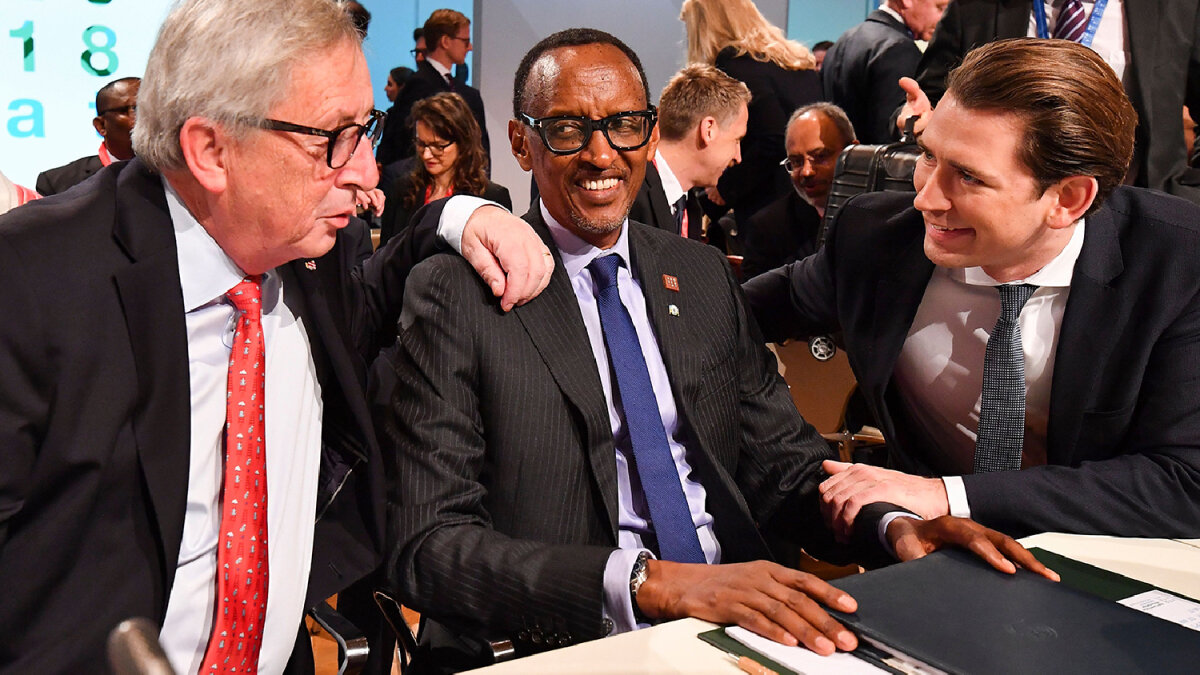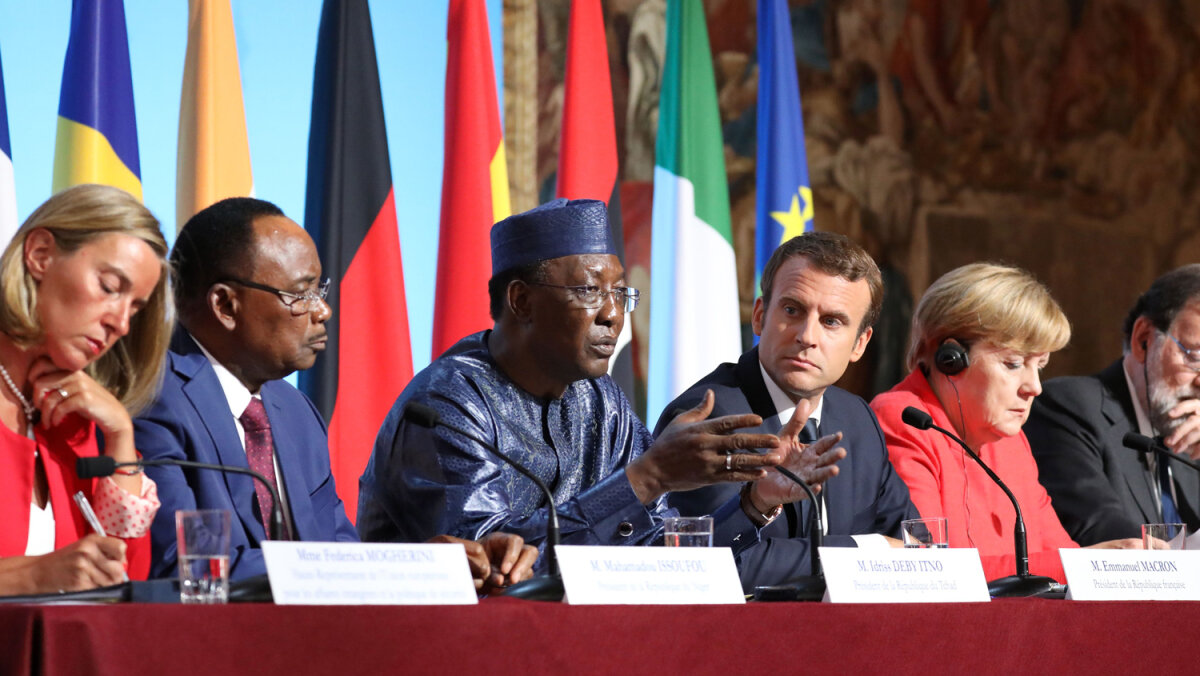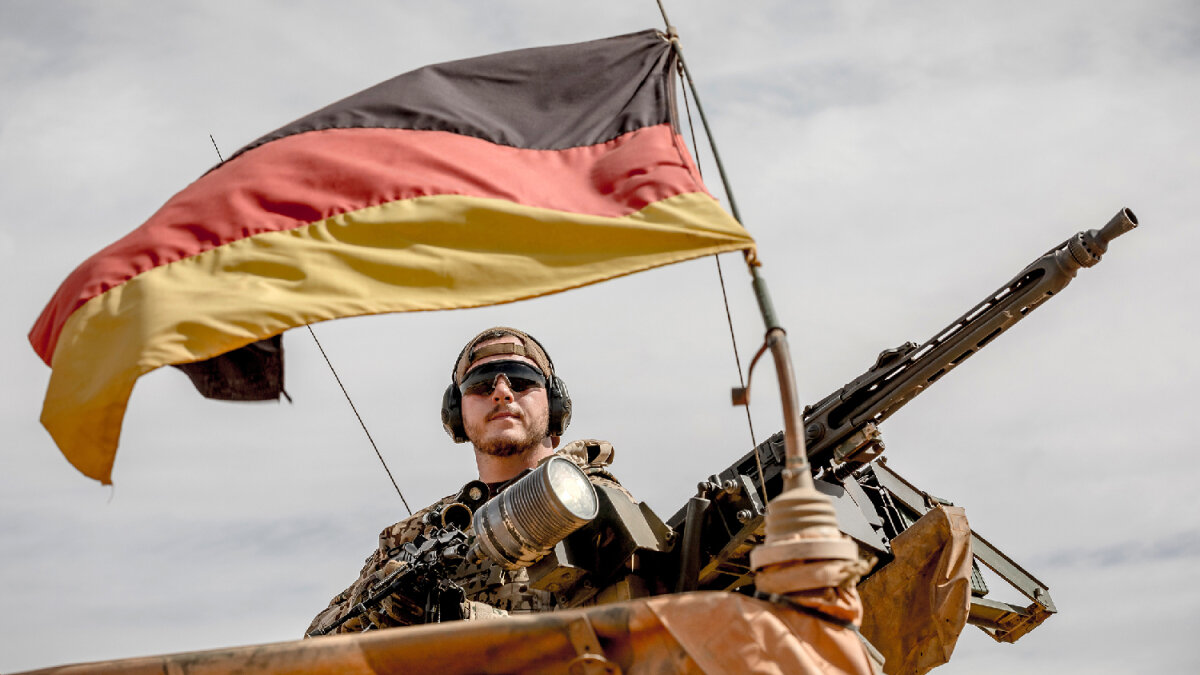The Economic ‘Scramble for Africa’
“Maji-maji!” roared the hordes of tribal warriors, as they charged the German guns.
By 1905, the tribes in German East Africa had grown restless under nearly 20 years of colonial rule over what is now Tanzania, Rwanda, Burundi and part of Mozambique. They toiled under Arab taskmasters, forced to work the cotton fields while neglecting their own crops. As word spread of the coming rebellion, tribal leaders streamed in to pledge their allegiance. A day was agreed upon, and the rebels assembled to attack the German garrison at Mahenge.
In his book The Scramble for Africa, Thomas Pakenham quotes a contemporary African writer’s account of what ensued:
Two [German] machine guns … rained death and destruction upon the advancing enemy. Although we saw the ranks thin, the survivors maintained order for about a quarter of an hour, marching closer amidst a hail of bullets … the first attackers were only three paces from the firing line when they sank to the ground … when no more enemy could be seen, the station commander climbed down … and distributed champagne.
So goes the story of the Maji-Maji rebellion, one of many brutal events which marked Germany’s colonial rule in East Africa.
The “Scramble for Africa” was the diplomatic and colonial struggle for control of Africa by European powers, spanning roughly 50 years, beginning in the middle of the 19th century. Germany, France, Portugal, Spain, Italy, Belgium and Britain all owned territory.
And now, more than 100 years later, Europe is once again heavily involved in Africa. Today, its main weapon is not violent conquest, but economics.
https://soundcloud.com/trumpethour/week-in-review-iran-vs-britain-germanys-arms-exports-chinas-military-ambitions-and-much-more#t=33:58
After nearly 20 years of negotiations and intermediate steps, 54 African nations signed up to activate the African Continental Free-Trade Area (afcfta) on July 7. This created the world’s largest free-trade zone, encompassing 1.3 billion customers. The trade zone aims to improve trade among African countries by creating economies of scale and cheapening imports, as well as introducing visa-free travel and integrated transport.
Some praise the free-trade zone as a major step toward prosperity for the African continent; others point out that it has a long way to go before benefits materialize, and it is threatened by corruption and bureaucracy.
Africa certainly does have a long way to go. And one major power wants a decisive say in how it gets there.
When news of the deal appeared in headlines, most sources focused on the benefits and challenges for Africa; some made note of the development aid and construction already being undertaken by China. Hardly anyone, however, focused on another vital and directly involved region.

It is true that China is becoming more active in Africa, usually by debt-diplomacy. In 2017, China gave $2.5 billion in aid to Africa. The European Union gave $204.7 billion.
“The EU has been supporting African economic integration politically, technically and financially since the very beginning,” said the official Africa-EU website. “To prepare the afcfta, the EU has supported the African Union Commission (auc) on negotiations, technical expertise and technical studies.” This European-backed trade union “marks a new phase in Africa-EU relations,” said the European Commission’s website.
The EU is currently Africa’s largest trading partner. In 2017, Africa exported 38 percent of all its goods to EU nations, and imported 37 percent from the EU, according to data from Eurostat. France, Germany, Spain and Italy were the four biggest exporters. After the EU, the next biggest source of imports to Africa was China, at 19 percent. The U.S. accounted for 15 percent. The African Union said that African nations trade only 16 percent of their goods with each other, compared to 65 percent with European countries. In 2018, the value of this exchange was $305.4 billion.

Aid for Trade
The idea of a free-trade zone in Africa began in 2007 at the Lisbon Summit, where 54 African and 27 European leaders convened to create the Joint Africa-EU Strategy. This agreement has served as the basis for millions of euros in EU development aid for Africa.
Part of the Joint Africa-EU Strategy is the Pan-African program, which manages financial needs of the trade zone. Currently, Europe has budgeted $70.5 million for support of the African Continental Free-Trade Area, of which $29.8 million remain, ready to be distributed to nations of the African Union on an as-needed basis.
Europe also instituted the Aid for Trade fund, which nations around the globe contribute to, enabling them to receive money for trade-related development. Europe contributes the largest share (32 percent). Through Aid for Trade, Europe gave a total of $103.7 million to West Africa specifically to help prepare for the new free-trade area.

The EU is Africa’s number one source of development aid, according to the International Monetary Fund. African nations received 55 percent of all their official development assistance from EU member states in 2016, whereas only 29 percent came from the United States.
In June 2016, the African Union (AU) and the EU signed African Union Support Program iii, providing trade development funds to Africa. In a lopsided deal revealing a broader trend, the EU paid 85 percent of the $57.5 million grant, while the African Union paid just 15 percent.
The African Union Commission, a secretarial body seemingly named after the European Commission, received the grant and also “benefited from other EU-funded programs which include support to Peace and Security, Monitoring for Environment and Security in Africa, Disaster Risk Reduction, Election Observation, [and] AU Research Grants,” according to an African Union press release.
Another boost for Africa came in September 2018 when EU Commission President Jean-Claude Juncker announced $56.4 million in aid for Africa in his “state of the union” address. This covers implementation of the African Continental Free-Trade Area and founding a “trade observatory” to advise African leaders on setting policies.
The facts are clear: Europe is willing to pay if it means a strengthened European presence in Africa. Though other countries, notably China, are involved with trade and construction in Africa, nobody has made as many major long-term contributions as Europe. In an African Union press release, AU Commissioner for Infrastructure and Energy Dr. Amani Abou-Zeid called the partnership with Europe one of the most structured of any that Africa has.
In Europe’s Image
The significance of Europe and Africa’s relationship is often buried in official jargon, but at its most basic level, it is the story of the European Union financing EU-style integration of the African Union, all while making Africa more dependent upon Europe.
The stated goals for the African Continental Free-Trade Area appear to be styled after those of the EU. According to the website, it aims to “create a single continental market for goods and services, with free movement of people and capital.” The first, second, fourth and fifth EU Africa Summits all repeatedly emphasized priority areas, such as ease of mobility, migration and regional integration.
https://twitter.com/EuropeInGhana/status/1148168667206758403
The AU is working on a passport that would allow all citizens of member nations to travel freely between countries, avoiding the web of fees and bureaucracy currently associated with travel in the region. Although not yet available to the public, it is another step toward European-style integration.
In other words, the union is envisioned as an African version of the EU, with Schengen-like borders and integrated transport systems.
Peace and security were also priorities identified at the fourth summit in 2014. This means Africa is likely to continue receiving European military training and deployments, especially because the Sahel region continues to battle radical Islamic terrorism.
What happens when African nations refuse to conform to EU wishes? In 2014, Kenya declined to sign up to an EU Economic Partnership Agreement (epa), which the EU describes as a trade and development aid deal tailor-made for the needs of the developing country. The EU was in no mood to negotiate the deal with Kenya. It resorted to economic pressure tactics, imposing strict tariffs on certain imports from Kenya; this led to financial difficulties and layoffs at several major African firms. Unsurprisingly, Kenya signed up the next month.
“Developing countries have a gun pointed at their chest—either they sign or their market access to the EU is restricted,” said one German politician. “The epa is the opposite of development cooperation.”
Europe’s Economic Partnership Agreements are cause for concern. Researchers have pointed out that African industries and agriculture are not ready for tariffs to come down because European competition could drive them out of business.
Even if the free-trade zone increases trade between African nations, Europe’s involvement means it could be one-sided. Africa is still underdeveloped, and industries that previously depended on governmental protection to survive may topple under the pressure of European competition. The more that African nations trade with each other, the more Europe will benefit from a strong market for its goods.
A History of Conquest
In the 19th century, European nations gained 30 African colonies and ruled over approximately 110 million people. The Berlin Congress (1878) and the West Africa Conference (1884–85) were the main venues for negotiations over who would control which parts of Africa. On the surface, they were promoted as humanitarian endeavors, an “international crusade to suppress the slave trade.” Did it meet this altruistic goal? Was this the real reason that Germany, Italy, France, Belgium and others sought to gain control of the continent?
“Commerce, Christianity and Civilization” were what the colonists intended to spread, writes Pakenham. But as he further explains, it didn’t stop there:
[T]here was a fourth “C”—Conquest—and it gradually predominated. At first the European expeditions were too weak to challenge African rulers. It was safer to use blank treaty forms, explained away by an empire-minded missionary, than to use live ammunition. But paper imperialism soon proved inadequate. When effective occupation became necessary to establish a good title, conflict became inevitable.
This bullying approach started small but eventually became overt and extreme. Though well hidden, the same spirit of bullying persists today, shown in strong-arm tactics like the tariffs placed on Kenya.
At its most basic level, it’s all about national interest. In the words of King Leopold of Belgium to his ambassador in London: “I do not want to miss a good chance of getting us a slice of this magnificent African cake.”
The Oxford Reference says, “The Berlin Conference did not initiate European colonization of Africa, but it did legitimate and formalize the process.” This is what Europe’s backing of the free-trade zone does today: It legitimizes Europe’s involvement in the continent. Now, as then, it is leading to a stronger European presence in Africa.

Consider the effort Europe has expended to combat terrorism in Mali. Former German Foreign Minister Guido Westerwelle said in 2012 that Germany is “extremely concerned” about terrorism in Mali. “If northern Mali falls, then terrorist schools will be created there … and then not only Mali and the region, the North African nations, will be threatened, but also us in Europe.” The German anti-terrorism mission in Mali continues to this day. German Defense Minister Ursula von der Leyen called Mali “part of the European neighborhood, a neighborhood facing unending challenges.” The United Nations peacekeeping mission in Mali is one of the most dangerous on Earth: In less than five years, 169 soldiers have lost their lives.
Besides Mali, European forces, mostly French and German, are currently active or have been recently active in Tunisia, Cameroon, the Central African Republic, Mali and Niger, with bases established and anti-terrorism training programs in place for the local government. Germany and many other European countries participate in anti-piracy patrols in the waters off Somalia.
Europe’s fight against terrorism on the doorstep of the “European neighborhood,” its attempts to stem the flow of migrants, and its robust backing of the world’s largest free-trade zone all bear witness to a key fact: Europe still realizes the importance of Africa and is willing to take risks to defend its interests there.
Right now, Europe is making trade deals and talking about a partnership among equals. We are still in the stage of “treaty forms.”
Will the stage of conquest soon follow?
Imperialism Returns—Will It Work?
After the initial fighting of the disastrous Maji-Maji rebellion died out, German reinforcements arrived and counterattacked. Sweeping through villages with swords drawn, burning houses and crops, the Germans made quick work of the rebels. They purposely caused famines, which are estimated to have killed between 250,000 and 300,000 people. Entire tribes were nearly wiped out, and those who returned found their farmland overgrown with trees and overrun by animals. “By June 1906, almost all the ‘Maji-Maji’ districts were at peace again, but it was the peace of the wilderness,” writes Pakenham.
Will the free-trade zone take Africa-Europe relations “beyond a donor-recipient approach” to an alliance on fair and equal terms, as promised by the European Commission? Will it succeed in driving terrorists out of the Sahel and preventing Iranian proxies from destabilizing North Africa? Europe has historically been active in Africa, using it for militarily strategic purposes. But what does this have to do with a free-trade zone, supposedly created to make Africa more modern and independent?
One proven and authoritative source says that the exact opposite will occur.
Bible prophecy—the one source that has correctly predicted world events of our day—reveals the reason Europe pursues bases in Africa. It shows that Europe’s involvement in Africa is leading to war.
“Northern Africa is turning into a battleground with enormously important prophetic implications,” wrote Trumpet editor in chief Gerald Flurry in 2013.
Africa is indeed a battleground. Right now, Germany is leading Europe in the economic and trade side of that fight. But the Bible also predicts that this modern “scramble for Africa” will lead to all-out war.
“And at the time of the end shall the king of the south push at him: and the king of the north shall come against him like a whirlwind, with chariots, and with horsemen, and with many ships; and he shall enter into the countries, and shall overflow and pass over” (Daniel 11:40). We at the Trumpet watch for a German-led European power, known as “the king of the north,” to clash with a belligerent radical Islamic power, led by Iran, “the king of the south.” (Mr. Flurry’s booklet The King of the South fully explains Iran’s rise and prophesied conflict with Europe; order your free copy today.) In his booklet, Mr. Flurry writes that both the king of the south and king of the north “are rising fast on the world scene right now. This clash will shake the world as never before!”
Iran uses its terrorist proxies to destabilize regions beside strategic waterways in and around Africa, as in the cases of Somalia, Yemen, Libya and Ethiopia. This is part of the repeated pushing described in Daniel 11. In the end, Europe’s efforts to draw Africa closer will be thwarted by Iranian-backed terrorists, which will lead to the prophesied clash.
https://youtu.be/2AwrhF3RF2Y
Watch for Europe to make more inroads into Africa, using economic weapons like the free-trade zone to its advantage. When this Bible prophecy is fulfilled, it will bring unparalleled war upon the entire world.
But this is also a sign of the greatest news anyone could hear: It heralds the return of Jesus Christ and the end of war forever.
This is more than mere speculation or human forecasting. Start proving the reliability of Bible prophecy for yourself, today. To learn more about where a unified Europe and belligerent Iran will lead the world in a few short years, order our free books The Holy Roman Empire in Prophecy and The King of the South.
